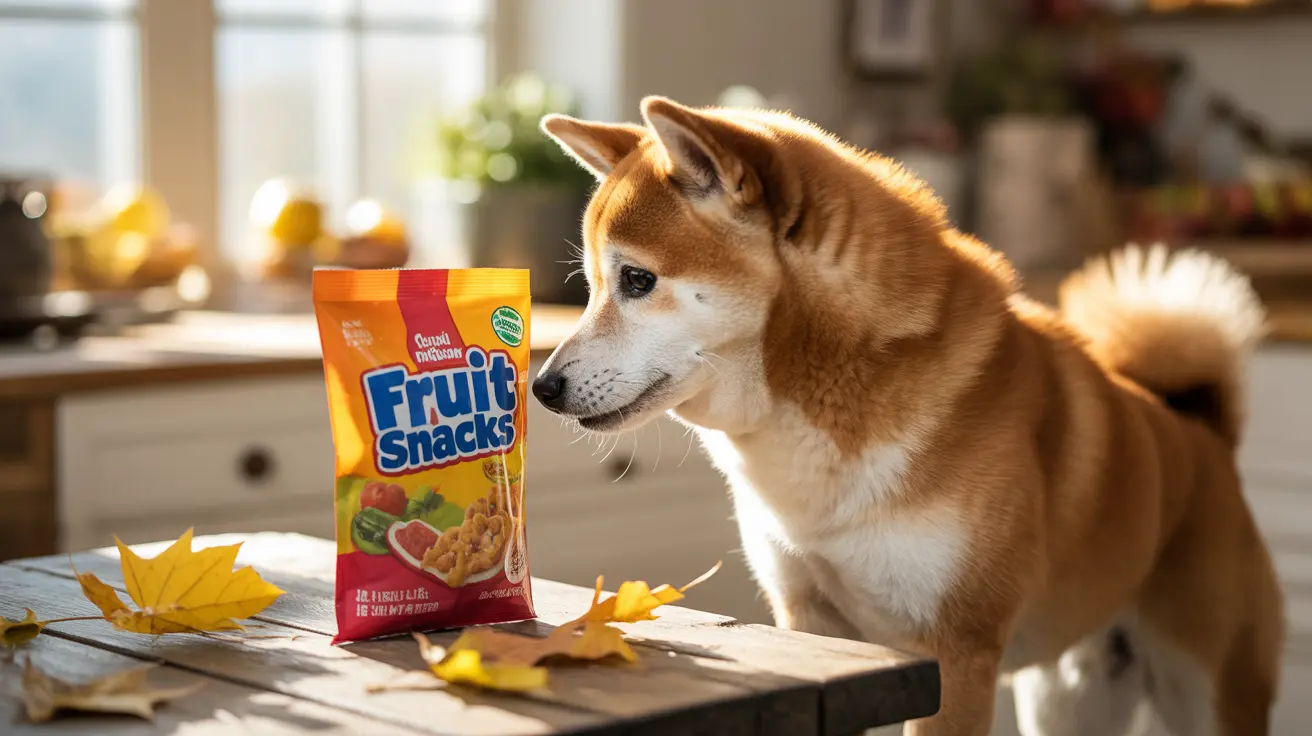As pet owners increasingly share their snacks with their furry friends, many wonder about the safety of giving dogs fruit snacks. While these chewy treats might seem harmless, there's more to consider than just their fruity flavoring. This comprehensive guide will explore whether dogs can safely consume fruit snacks and what alternatives might be better for your canine companion.
Understanding Fruit Snacks and Their Risks
Commercial fruit snacks are processed candies that typically contain concentrated fruit juice, sugar, and various additives. While not immediately toxic in small amounts, these treats pose several risks to dogs:
- High sugar content leading to obesity and dental problems
- Artificial sweeteners, including potentially lethal xylitol
- Preservatives and artificial colors that can cause digestive issues
- Possible grape or raisin derivatives, which are toxic to dogs
Dangerous Ingredients to Watch For
When examining fruit snacks, several ingredients raise serious concerns for dog health:
Xylitol Alert
This artificial sweetener, common in sugar-free varieties, can cause rapid blood sugar drops and liver failure in dogs. Even small amounts can be lethal.
Grape-Based Ingredients
Any fruit snacks containing grape juice or concentrate can cause severe kidney problems in dogs, with some dogs being especially sensitive to even tiny amounts.
Health Impact on Dogs
Feeding fruit snacks to dogs can lead to both immediate and long-term health issues:
Short-Term Effects
- Vomiting and diarrhea
- Stomach upset
- Lethargy
- Dental problems
Long-Term Consequences
- Weight gain
- Diabetes risk
- Dental decay
- Potential organ damage
Safe Fruit Alternatives for Dogs
Instead of processed fruit snacks, consider these healthy, dog-safe fruits:
- Apples (without seeds)
- Blueberries
- Watermelon (seedless)
- Bananas
- Strawberries
Always wash fruits thoroughly and serve in appropriate portions for your dog's size.
Feeding Guidelines for Fresh Fruits
When offering fresh fruits to your dog:
- Start with small amounts to test tolerance
- Remove seeds, pits, and rinds
- Follow the 10% rule: treats should not exceed 10% of daily caloric intake
- Cut into appropriate sizes to prevent choking
Emergency Response
If your dog consumes fruit snacks containing harmful ingredients:
- Check the package for xylitol or grape products
- Monitor for unusual symptoms
- Contact your veterinarian immediately if concerned
- Keep poison control numbers handy
Frequently Asked Questions
Can dogs safely eat fruit snacks, or are they harmful to their health?
While not immediately toxic in small amounts, fruit snacks are generally harmful to dogs due to high sugar content, artificial additives, and potentially dangerous ingredients like xylitol or grape derivatives. It's best to avoid giving them to your dog.
What ingredients in fruit snacks are toxic or unsafe for dogs?
The most dangerous ingredients include xylitol (artificial sweetener), grape/raisin derivatives, artificial colors, and excessive sugars. Xylitol can be lethal, while other ingredients can cause various health issues.
Which fresh fruits are safe and healthy alternatives to fruit snacks for dogs?
Safe alternatives include apples (without seeds), blueberries, watermelon (without seeds), bananas, and strawberries. These provide natural nutrients without the risks of processed snacks.
What are the signs and risks if my dog eats fruit snacks containing grapes or xylitol?
Signs of xylitol poisoning include vomiting, weakness, and collapse within 30 minutes to 12 hours. Grape toxicity can cause lethargy, vomiting, and kidney failure within 24-48 hours. Both require immediate veterinary attention.
How can I properly introduce fresh fruit treats to my dog without causing digestive upset?
Start with small amounts of one type of fruit, watching for any adverse reactions. Gradually introduce new fruits one at a time, always removing seeds and cutting into appropriate sizes. Monitor your dog's response for 24-48 hours before increasing portions.
Conclusion
While dogs can technically eat fruit snacks, they shouldn't. The risks far outweigh any potential enjoyment your pet might get from these treats. Instead, focus on offering fresh, dog-safe fruits in moderation as part of a balanced diet. Always consult with your veterinarian before introducing new foods to your dog's diet, and keep potentially harmful snacks safely out of reach.






